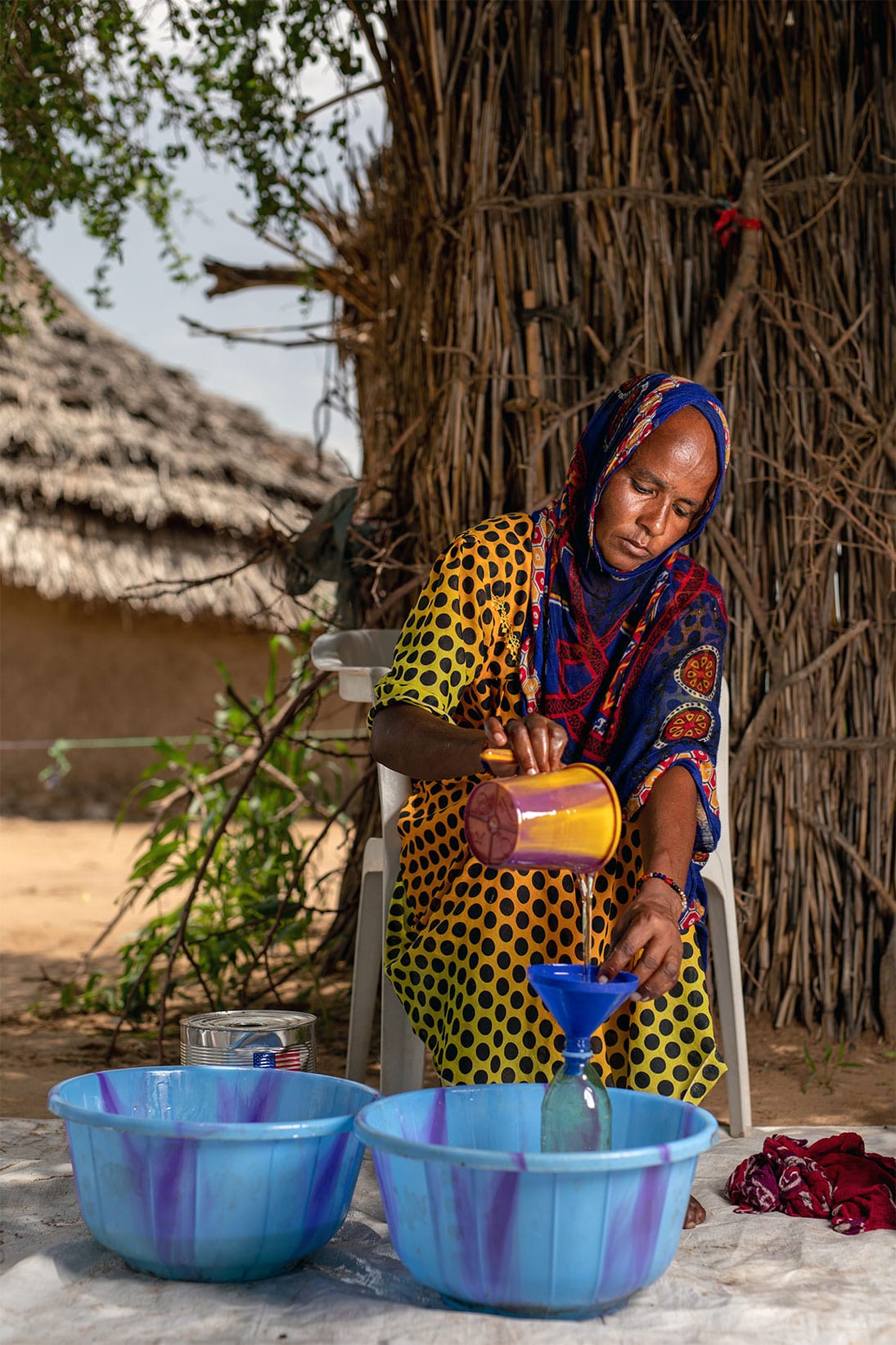Article from our Water, Sanitation and Hygiene Barometer 2021
By Alain Boinet, Founder of SOLIDARITÉS INTERNATIONAL, and Antoine Peigney, Chairman of SOLIDARITÉS INTERNATIONAL.
Water and health experts consult one another all too rarely. This despite the fact that waterborne diseases contracted from unsafe drinking water kill 2.6 million human beings each year! These diseases are well known: cholera, diarrhea, typhoid fever, hepatitis A, bilharzia, polio, etc.
Unsafe drinking water is a major cause of mortality and, as such, it is a humanitarian emergency—particularly in the poorest countries where populations are beset by conflicts and natural disasters.

Water and health constitute two of the main priorities of the UN’s 2030 Agenda for Sustainable Development and its 17 Goals (SDGs). Goal 6 seeks to achieve universal access to drinking water and sanitation in 10 years.
Although progress has been made, the official figures show we still have a long way to go (see pp. 6-7 of our Barometer). As it stands, 29% of the global population lacks access to drinking water and 55% to sanitation. Likewise, 1.4 billion people lack access to sanitary facilities equipped with water and soap, and 3 billion are still unable to wash their hands at home. Moreover, 80% of the world’s wastewater is released into the environment untreated.
Nearly 1 in 4 health centres worldwide lacks access to drinking water. 1 in 10 lacks access to sanitation services. And the situation is far worse in the 47 least-developed countries, where 1 in 2 health centres lacks drinking water and 3 in 5 lack sanitation. As of 2019, a mere 30% of schools worldwide were equipped to provide pupils with safe drinking water.
We need to act now: unsafe drinking water doesn’t just kill; it also stifles development. And we need to act on two fronts simultaneously: 1 – delivering humanitarian and development assistance to vulnerable populations, and 2 – lobbying institutions to ensure that policies get enacted and critical resources mobilized.
We need to pick up the pace and seek out new tools if we are to achieve universal access to drinking water, sanitation and hygiene, as per the unanimous commitment made by 195 states at the UN in 2015.
> READ THE 2021 BAROMETER OF
WATER, SANITATION AND HYGIENE
Photo header © Vincent Ghilione / SOLIDARITÉS INTERNATIONAL
Photo in article © Gwenn Dubourthoumieu / SOLIDARITÉS INTERNATIONAL
